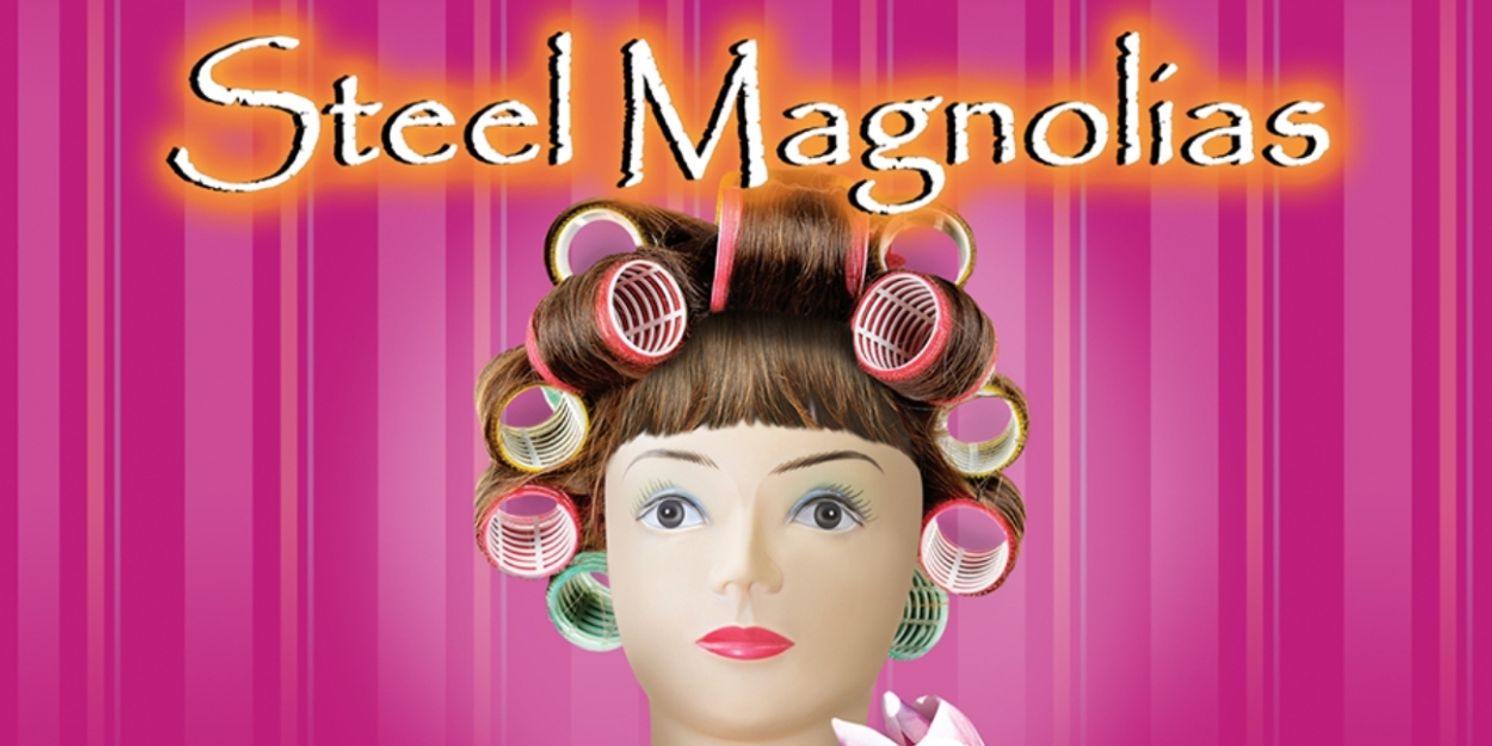
What’s up with all these therapists’ offices masquerading as beauty parlors? Women walk into these places as broken shells of themselves and often walk out feeling on top of the world. Sure, they get their hair and/or nails done, but they get so much more than just that. They’re renewed.
Is it because their “outsides” getting refreshed makes them feel better on the inside or is it the conversations that take place during these restorations that provide the catharsis? Maybe it’s both. Either way, it’s certainly transformative and most beauticians will tell you that they hear a lot more details about their patients clients than a therapist ever would. It’s a vulnerable thing to walk into a building looking less than your best (or even disheveled), admit you need help and trust that another person, without judgement, has the skills necessary to see your flaws and make you better.
That vulnerability often leads to opening up about all sort of things-loves, dreams, disappointments. These type relationships are precious. However, when that beauty shop is in a small town, the details and stakes seem to grow exponentially as is the case in Robert Harling’s STEEL MAGNOLIA’s now playing through May 12th at Theatre Memphis. Starring some of Memphis’ finest actors, all the pieces are in place for an amazing experience, but this production somehow falls short of expectations. Like a much anticipated “makeover,” all the ideas sound amazing until you turn around for the big reveal only to discover it just doesn’t quite work.
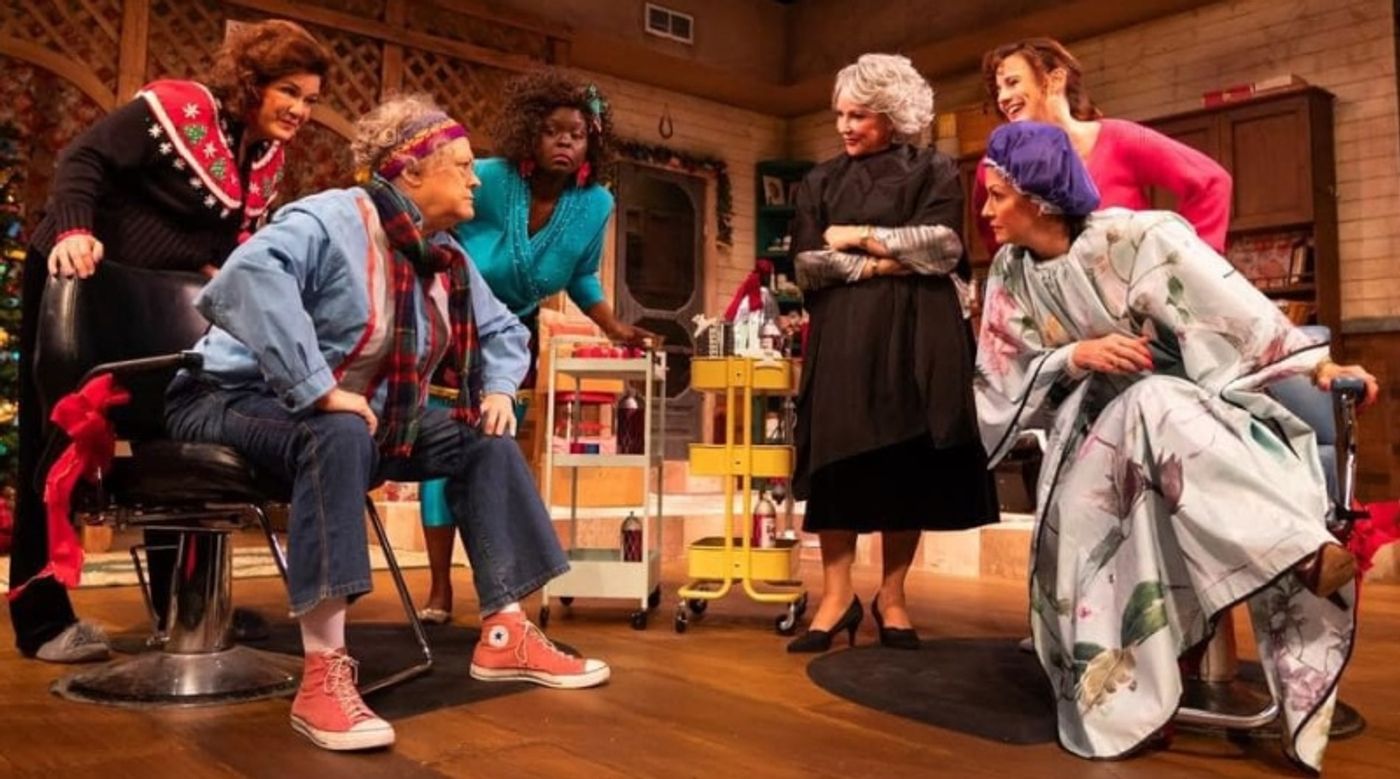
The story about six strong women coming together in a beauty shop to prepare for life’s biggest events (weddings, holidays and even funerals) opened on Broadway back in 1987 before making an even bigger splash as a film in 1989. Starring Sally Field, Shirley MacLaine, Dolly Parton, Julia Roberts, Daryl Hannah and Olympia Dukakis, the movie generated a generation of rabid fans who can easily recite the film’s most iconic lines: “There is no such thing as natural beauty;” “I would rather have thirty minutes of wonderful than a lifetime of nothing special;” “I’m not crazy, I’ve just been in a very bad mood for 40 years!” It became a hit by highlighting the bonds between women (in all forms) with its witty dialogue and poignant story about life and loss.
Set in Louisiana with dialogue caked in a southern drawl, having two founders of Memphis’ own theatre troupe (Voices of the South) in director and lead actress seems to equate to a perfect night at the theatre. Since 1995, Voices of the South has made a name for themselves all over the world presenting pieces with a distinct southern perspective. This group celebrates the American southern experience utilizing southern authors with southern directors and actors. For example, TM’s 2022 production of CICADA, written and directed by Jerry Dye and starring Alice Berry was darn near perfection with its southern authenticity in style and execution. Here, they’re back again as director and lead actress, but this time, the genuineness is strangely missing. In a production much better known for its cinematic iteration than the original source material, this talented cast seems to push too hard rather than trusting themselves and settling into the piece. Rarely have you seen such talented actors “act” so hard. The cohesion is missing. Each actress is trying to "out bumpkin" the next as they practically fall over themselves to deliver their next big punchline. Rather than relaxing, trusting the words and simply listening to each other, six actors are siloed and waiting for their turns to speak. Maybe they’ll eventually settle into the piece and find their symbiosis as the run continues, but it was missing on opening weekend.
.jpg?format=auto&width=1400)
Alice Berry works a lot harder than necessary to play the gossip-loving shop owner with a heart of gold, Truvy Jones. Berry is a highly skilled actor who typically brings a naturalism to her characters, but here she overplays it, both in volume and mannerisms. She has some of the show’s best lines and many of them land, but many also miss the mark. Oftentimes, comedy works better underplayed, but there seems to be no dimmer switch available for this "desperate to be convincing" country gal.
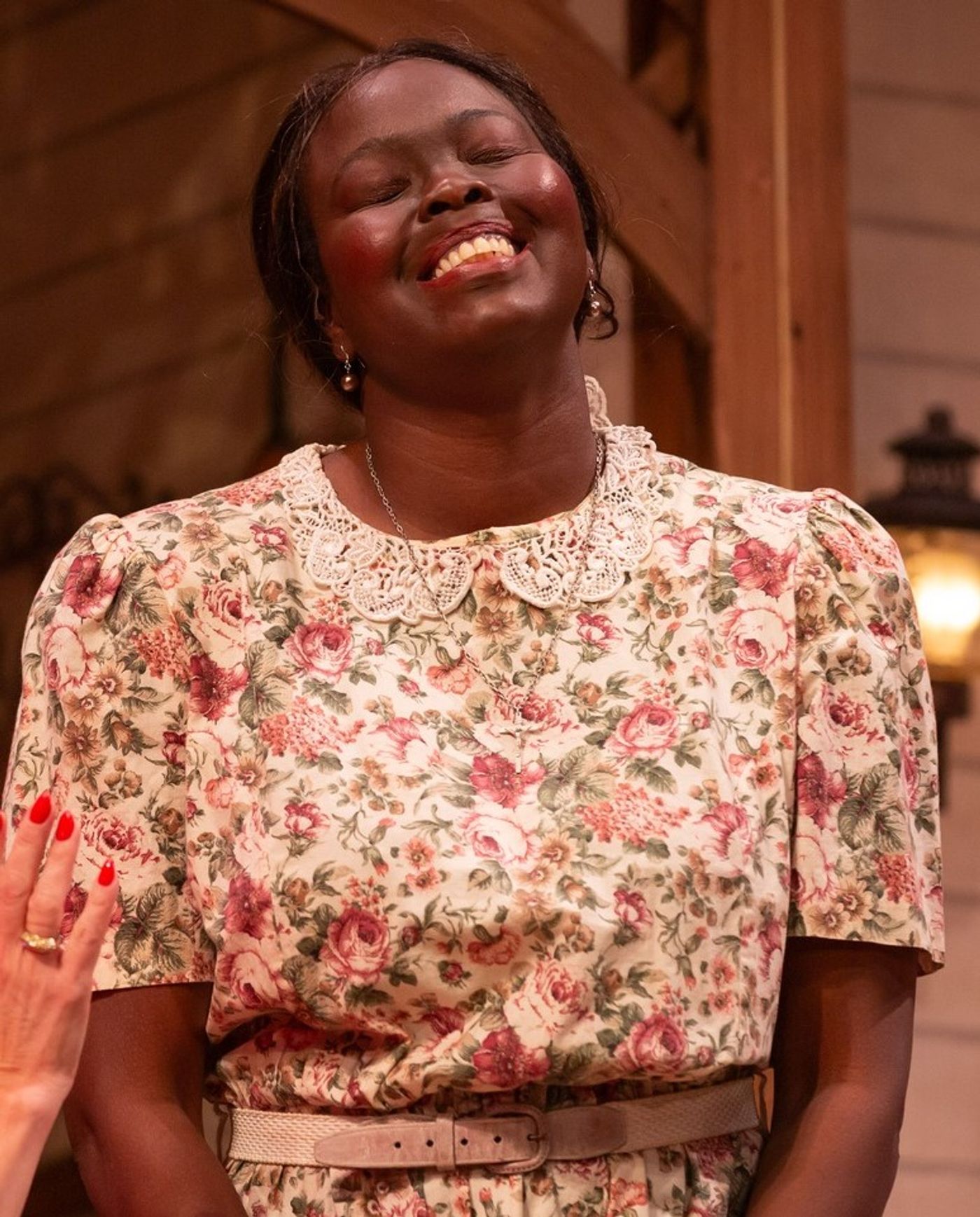
Likewise, Hiawaratha Jackson, who was absolutely captivating in her TM performance of THE CRUCIBLE last fall, unfortunately vacillates wildly between being distractingly expressive and virtually invisible as the insecure newcomer to the shop (Annelle). She strives to be awkward and nervous, but it’s not necessary. Jackson also has some great lines and gets some of the evening’s biggest laughs, but at the expense of believability. Her character has the biggest “arc” of the ensemble (from kitten to lioness); however her attempts to be goofy instead of being naturalistic detract and distract.
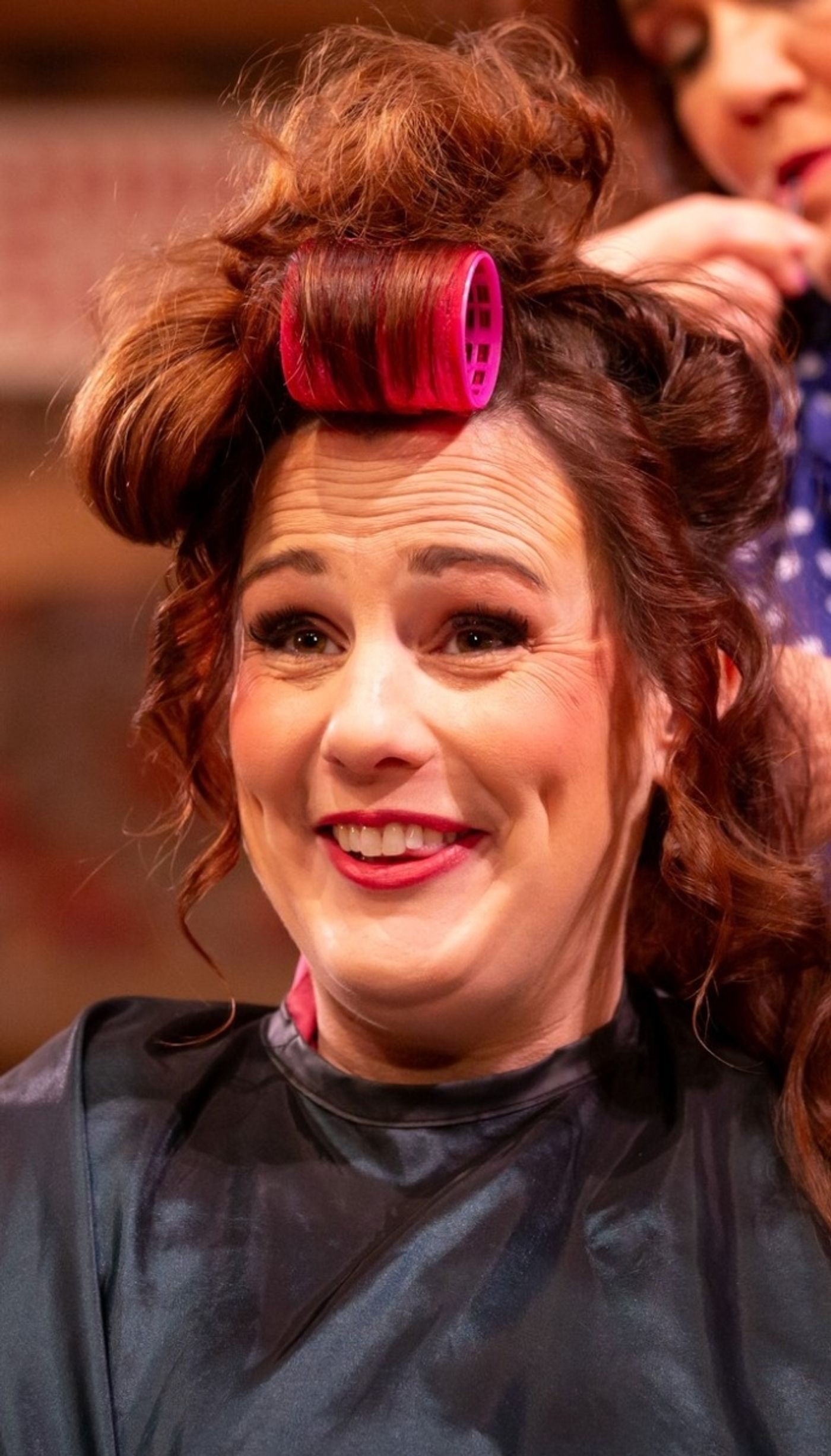
In her TM debut, Taylor Ragan plays the focal character (Shelby) who the patrons rally around to help support through her wedding, pregnancy and medical complications. Shelby reminds the ladies of their own personal milestones and is seen as the de facto daughter to them all. Shelby is growing up and fights hard to exert herself while also distancing herself from her mother and those understandable parental fears. Like the previously mentioned, Ragan over acts much of her rebellion and annoyance with the adults around her rather than trusting the material and aiming for realism. The connections with the others feels forced and insincere and, with this character being the heart of the story, authenticity is paramount.
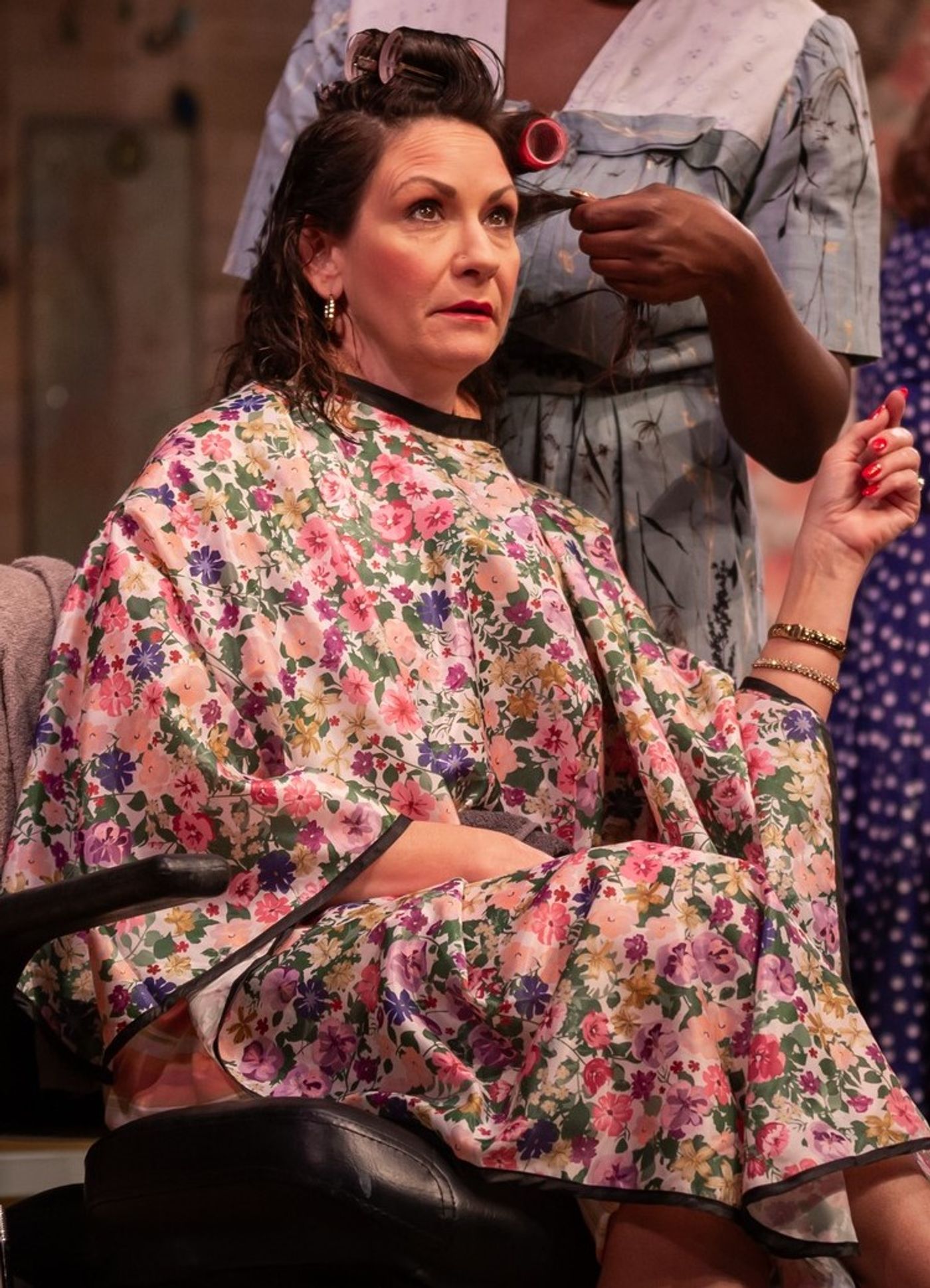
As Shelby’s mother M’Lynn, Lindsey Roberts plays it stern and stressed. With a trigger happy husband at home and a daughter growing up faster than she might prefer, M’Lynn attempts (but fails miserably) to hold it all together. Roberts is much more realistic than the aforementioned, but struggles to keep the portrayal from becoming too one dimensional and “tightly wound.” Yes, her character has plenty to worry about (daughter’s wedding and overall health), but moments of genuine joy and happiness are too often buried under impending doom and are sorely missed.
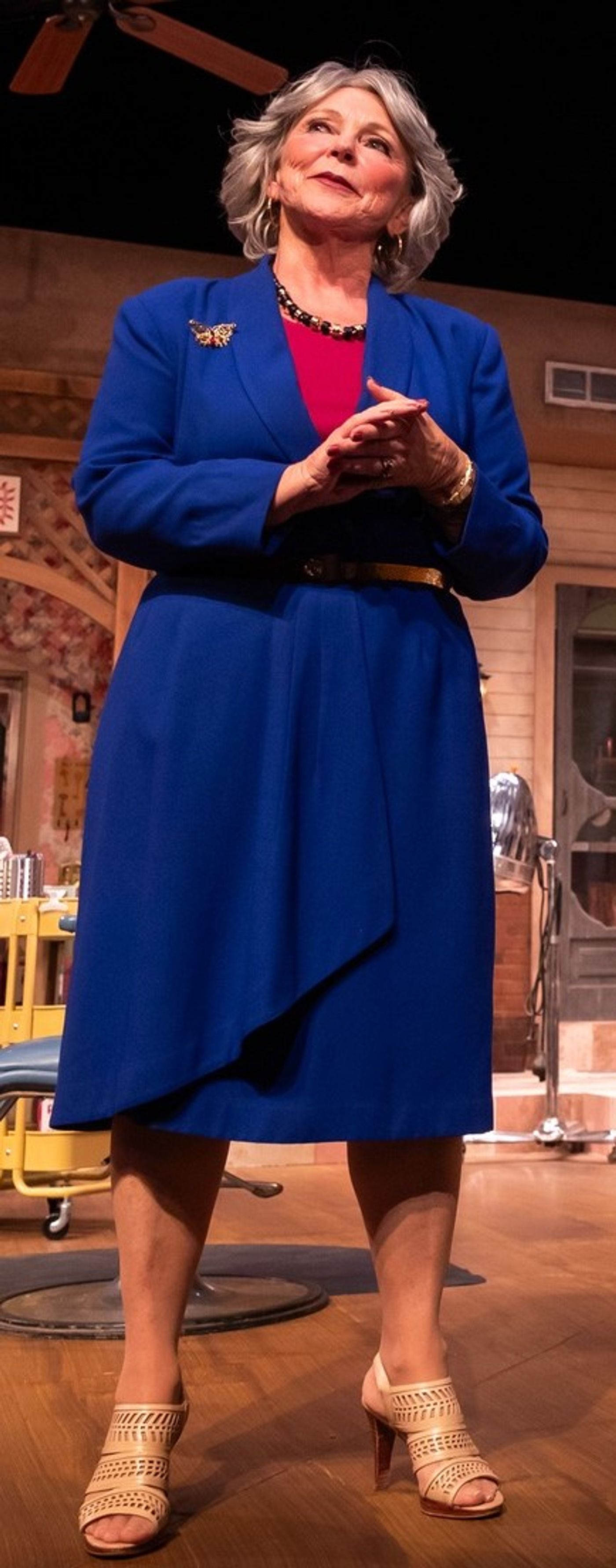
Veteran actor Jeanna Juleson is back on stage as Clairee Blecher (widowed wife to the town’s former mayor). She is the wealthiest and classiest of the bunch, but still loves her football (as any true southern belle should). She manages to keep her performance the most realistic of them all and acts as the “straight woman” and voice of reason to the stronger personalities around her. Unfortunately, some of her most iconic lines (“Hit her!”) are nearly missed due to her low volume and lack of microphone—something that Theatre Memphis appears resolute in not providing for their non-musicals.
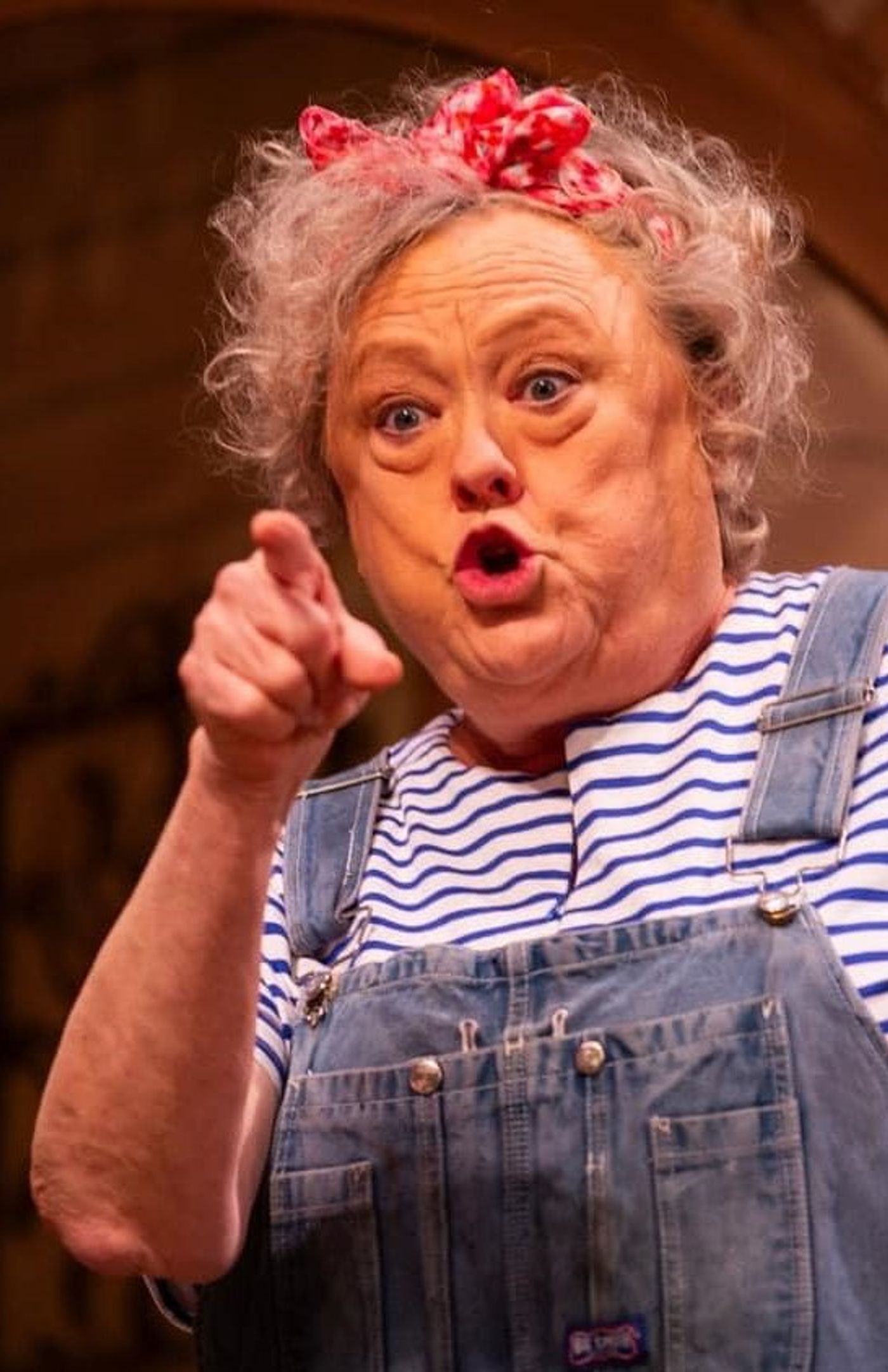
Thankfully and ironically, Sally Stover steals the show as Ouiser Boudreaux (the town grump). “Thankfully” because she brings the energy and charisma needed to keep the show interesting and “ironically” because her performance is truly over the top, but still works for her in the way it should. It all works because Stover is fully committed to her choices without any contradiction or hesitancy. Ms. Stover, like the character, makes no apologies for her choices and you can’t help but love her for it. Always looking like something the cat drug in, Stover’s character is a constant sight gag who is ready to fight with anyone and anything standing in her way. She maximizes her one liners and infuses the show with constant delight. She’s perfectly cast.
Jack Netzel-Yates’ set design will once again have you muttering “Damn! Look at that!” the minute you enter the theatre. His surprisingly sprawling set of a one-room salon is filled with southern relics such as “old-timey” coke machines, cheap lattice work and window fans in a way that feels thoroughly “worn.” It all exudes a feeling of home with walls that have seen a lot, yet paradoxically offer the perfect respite for its patrons needing rejuvenation.
To be clear, STEEL MAGNOLIAS is a solid show. The opening weekend audience laughed loudly and laughed often. The show is expertly written and this production still exceeds most community theatres in America, but it doesn’t quite measure up to TM’s more recent offerings. Dye’s usual attention to detail as a writer and director is missing here and allows more sloppiness than usual. There is a musicality to the southern dialect and the proper turns of phrases in a show like this have to be precise. Relying on the words alone can often work well with a piece like this, but Dye’s cast doesn’t seem to trust and tries too hard. (For example, to allow an actress in a story clearly set in the 1980’s to mimic/reference the iconic dance movements of Julia Louis-Dreyfus’ Elaine character from a 1996 episode of “Seinfeld” is wholly disappointing and inexcusable. He knows better).
TM’s recent seasons of success equate to an almost guaranteed sold-out run of this production. Fans of the film/play will be able to go in anticipating their most favorite lines and quote them right alongside everyone else. People less familiar with the story will probably recognize many of the characters portrayed—a worrisome mom, a gossipy neighbor or a crotchety old bitty—strong women to be sure, but all also flawed. Likewise, all six actresses in this production are strong performers, but more flawed than usual as they seem to prioritize their own performances over the ensemble as a whole. Listening, relaxing and sharing the spotlight will win the day here.
Photos by Carla McDonald
Reader Reviews

Videos

